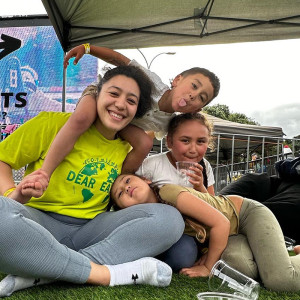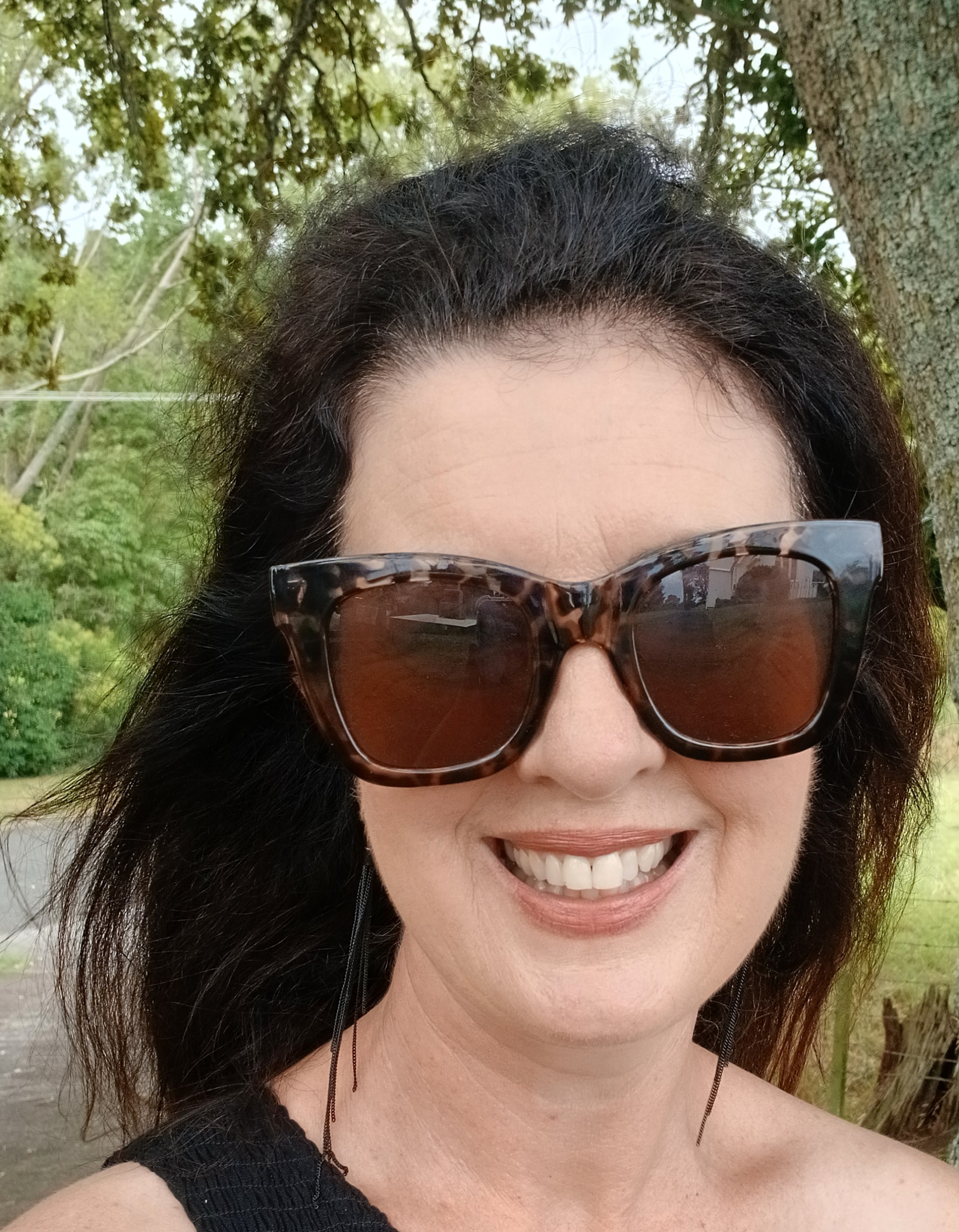
Planning & budgeting
Saving & investing
KiwiSaver
Tackling debt
Protecting wealth
Retirement
Home buying
Life events
Setting goals
Money tracking
Plan your spending with a budget
Getting advice
Studying
Get better with money
What pūtea beliefs do you have?
How to build up your emergency savings to cover unexpected costs
How to save your money
How to start investing
Find a financial adviser to help you invest
Your investment profile
Compound interest
Net worth
Types of investments
Term deposits
Bonds
Investment funds
Shares
Property investment
How KiwiSaver works and why it's worth joining
How to pick the right KiwiSaver fund
Make the most of KiwiSaver and grow your balance
How KiwiSaver can help you get into your first home
Applying for a KiwiSaver hardship withdrawal
How to use buy now pay later
What you really need to know before you use credit
How to get out of debt quickly
Credit reports
Know your rights
Pros and cons of debt consolidation
Credit cards
Car loans
Personal loans
Hire purchase
Student loans
Getting a fine
What happens if I start to struggle with moni?
How to protect yourself from fraud and being scammed
About insurance
Insurance types
Insuring ourselves
Wills
Enduring powers of attorney
Family trusts
Insuring our homes
Losing a partner
Redundancy
Serious diagnosis
How to cope with the aftermath of fraud
Separation
About NZ Super – how much is it?
When you’re thinking of living in a retirement village
How to plan, save and invest for retirement
Manage your money in retirement
Find housing options in retirement
Four approaches to spending in retirement
Planning & budgeting
Saving & investing
How to build up your emergency savings to cover unexpected costs
How to save your money
How to start investing
Find a financial adviser to help you invest
Your investment profile
Compound interest
Net worth
Types of investments
Term deposits
Bonds
Investment funds
Shares
Property investment
View all
KiwiSaver
Tackling debt
How to use buy now pay later
What you really need to know before you use credit
How to get out of debt quickly
Credit reports
Know your rights
Pros and cons of debt consolidation
Credit cards
Car loans
Personal loans
Hire purchase
Student loans
Getting a fine
What happens if I start to struggle with moni?
View all
Protecting wealth
Retirement
Home buying
Updated 15 September 2025
First published 12 September 2023
Reading time: 4 minutes
By Elizabeth O'Halloran,
3 comments

Te Wiki o te Reo Māori gives everyone the chance to learn about money from a new perspective.
Staying on track with money can be hard, but approaching it with a new perspective can help change your thinking. Kimiorangi Thompson (Ngāi Tāmanuhiri, Ngāti Rangiwewehi) knows how important it is to provide a different perspective on money in her role at Te Whai Hua – Kia Ora, Sorted in Schools.
“In my mahi as the kaikōkiri/learning specialist, I get to work alongside kaiako/teachers and support them to teach financial wellbeing in kura Māori, in te reo Māori, using Māori concepts. We provide the money kupu/words in te reo Māori for kura, but the ao Māori approach is equally important – it helps kaiako understand how to approach money from their worldview.”
Kimiorangi’s favourite way to explain money management is to reflect on how her tīpuna approached managing resources, and how the same strategy and Māori wisdom can also be used for money.
“Our tīpuna have always been good at resource management and money is just another resource that we can manage using the same principles,” she explains.

“Our tīpuna have always been good at resource management and money is just another resource.”
The system that our tīpuna used (which are still used today) is a careful approach to finite resources that incorporates the understanding that they need to be looked after and replenished. A practical example of resource preservation is rāhui – a prohibition to protect a resource, which is typically used to manage kai. At certain times of year, a rāhui will be placed on kai to preserve it until the food is ready to be harvested or gathered.
This is similar to a savings account or an emergency fund. If you put a rāhui on your bank account and don’t take any money out so you can grow it, by the time you need it, you’ll have plenty to cover anything unexpected. If you take money out every time you put it in, when you really need it, you might not have enough.
Kimiorangi uses this te ao Māori approach for her own bank accounts; she jumps on Sorted’s budget planner to work out how much she needs to save for unexpected costs. “I put a rāhui on my bank accounts, so I have the funds ready when I need them,” she says.

“I put a rāhui on my bank accounts, so I have the funds ready when I need them.”
Growing your money is also important, so your rāhui does the hard work you need it to. Part of that is working out the best way to save. For Kimiorangi, it was taking the next step by thinking about her personal approach using the money personality quiz.
“I’ve recently completed the quiz to help me understand my own attitudes and behaviours towards money and that led me to be more interested in investing. My next step is checking out the investor profiler and Smart Investor to find out more about how I can grow my money. I’m looking forward to checking those out.”
There are clear parallels between money and te ao Māori, traditional practices and the taiao (environment), and the systems we need to manage money. There isn’t just one way to make money work for you.
Using knowledge from te ao Māori and thinking about how her tīpuna would approach money and life today, drawing on their wisdom, works well for Kimiorangi and the kaiako she supports. She says the proof is in the kina.
“Where I’m from on the East Coast, kina aren’t gathered until the pōhutukawa tree is in bloom, which, as we know in Aotearoa, is in summer. In the winter months, the kina are small and not very tasty, but if you’re patient and wait for the summer months, you’ll be rewarded with fat, creamy kina – yum!”
The kina echo Kimiorangi’s emergency savings account after her rāhui – a great reward for all the saving that keeps her money on track and helps her financial wellbeing and resilience.
 Elizabeth O'Halloran
Elizabeth O'Halloran
Elizabeth is Sorted's communications lead. Previously a producer, and with a background in public sector comms, she loves seeing how people can transform their financial wellbeing with the right tools, information and support.
Use verification code from your authenticator app. How to use authenticator apps.
Code is invalid. Please try again
Don't have an account? Sign up
Or log in with our social media platforms


A free account gives you your very own space where you can save your tools and track your progress as you get ahead.
Or sign up using Google:



Comments (3)
Comments
17 September 25
Ngawari
Mīharo Kimiorangi! He whakaaro tino Māori kia tū tētahi 'rāhui' ki runga i ētahi kohi moni. Aku mihi.
14 December 23
Mary
A rahui on my bank account – so much better than it being locked away – a protection rather than a deprivation. I am now thinking of my saving of 3 months to a years expenses as having a rahui applied to it and my other account/sinking fund as a kina account waiting for the summer when there will be funds to repair my whare. Kia ora.
17 September 23
Chanelle
Absolutely love this perspective from a Te Ao Māori view, especially how Kimiorangi has framed money as a resource to which our Tīpuna were/are experts at managing. Ka rawe!!
No one has commented on this page yet.
RSS feed for comments on this page | RSS feed for all comments